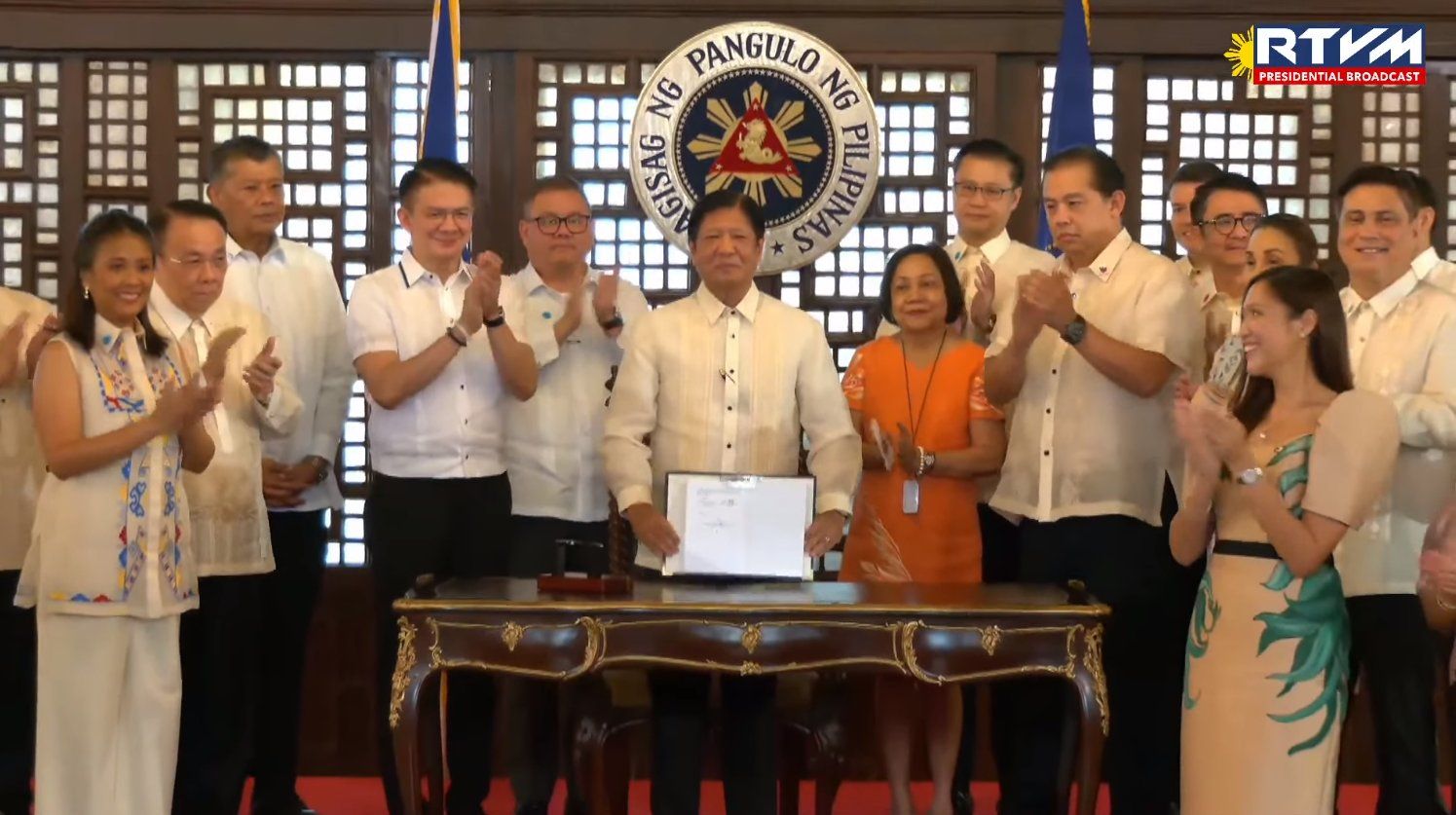Marcos signs Anti-Agricultural Economic Sabotage Act
At A Glance
- The new law repeals RA No. 10845 or the Anti-Agricultural Smuggling Act of 2016, replacing it with more comprehensive mechanisms to ensure stricter enforcement and better implementation.
"This is not just another policy, it is your battle cry."
President Marcos said this as he assured local farmers and fisherfolk of the government's stronger resolve in protecting and uplifting their lives through the newly signed Republic Act (RA) No. 12022 or the Anti-Agricultural Economic Sabotage Act which aims to dismantle illegal activities that disrupt food supply and inflate prices.

In his speech during the ceremonial signing in Malacañan, the President said that everyone involved in the smuggling, hoarding, profiteering, and other cartel activities involving agricultural products will be held liable.
"Let me be clear: this law does not just target the masterminds. It holds all accomplices accountable— financiers, brokers, employees, even transporters," he said on Thursday, Sept. 26.
"We will enforce the law and ensure that swift and decisive action is taken against anyone who dares to sabotage our agricultural sector," he added.
To Marcos, this new law is important after noting that the country lost over P3 billion to agricultural smuggling. He added that P213 million worth of smuggled agricultural products were seized by the government in just nine months this year.
"The passage of the Anti-Agricultural Economic Sabotage Act will set in motion transformative outcomes," he said.
"It is a proactive measure to prevent the entry of smuggled agricultural products, ensuring that the correct duties and taxes are paid while imposing higher penalties on violators," he added.
According to the President, the new law shapes a stronger and more resilient agricultural sector that defends farmers and consumers as it safeguards public health by preventing the consumption or industrial processing of agricultural products that lack the necessary sanitary and phytosanitary permits.
"It ensures that what ends up on the tables of every Filipino family is safe and of the highest quality," he said.
"By eliminating smuggling, hoarding, profiteering, and other cartel activities, we are not only shielding our local producers but also providing consumers with affordable agricultural and fishery products," he added.
Under RA 12022, smuggling, hoarding, profiteering, and cartel operations involved in agricultural and fishery products will now be classified as economic sabotage—a non-bailable offense punishable by life imprisonment and fines up to five times the value of the goods involved.
It likewise establishes the Anti-Agricultural Economic Sabotage Council and Enforcement Group which Marcos will chair. The Secretaries of Agriculture (DA), Finance (DOF), Transportation (DOTr), Trade and Industry (DTI), Interior and Local Government (DILG), and Justice (DOJ) will serve as Council members as well as the heads of the Anti-Money Laundering Council (AMLC) and the Philippine Competition Commission (PCC). The Council is tasked to ensure the proper implementation of the Act, coordinate investigations, and conduct visits and inspections to enforce compliance with the law.
The Enforcement Group, on the other hand, is composed of the National Bureau of Investigation (NBI); the Philippine National Police (PNP); the Philippine Coast Guard (PCG), and the DOF.
The law also creates the Anti-Agricultural Economic Sabotage Enforcement Group dedicated to dismantling smuggling operations and apprehending offenders.
Meanwhile, President Marcos assured farmers and fishers of a faster resolution of cases related to agricultural sabotage as the law provides for developing a special team of prosecutors nationwide to expedite such cases.
"No longer will these cases gather dust. They will be prioritized and they will be resolved urgently," he said.
"We will confront and dismantle the powerful forces that have long exploited our system for their own gain, ensuring that justice prevails and the dignity of our agri sector is upheld. No more backdoors, no more shortcuts, and, certainly, no more turning a blind eye in Bagong Pilipinas," he added.
The new law repeals RA No. 10845 or the Anti-Agricultural Smuggling Act of 2016, replacing it with more comprehensive mechanisms to ensure stricter enforcement and better implementation.
Ultimately, it aligns with the Administration’s broader commitment to achieving food security and supporting the agricultural sector which remains a vital pillar of the Philippine economy.